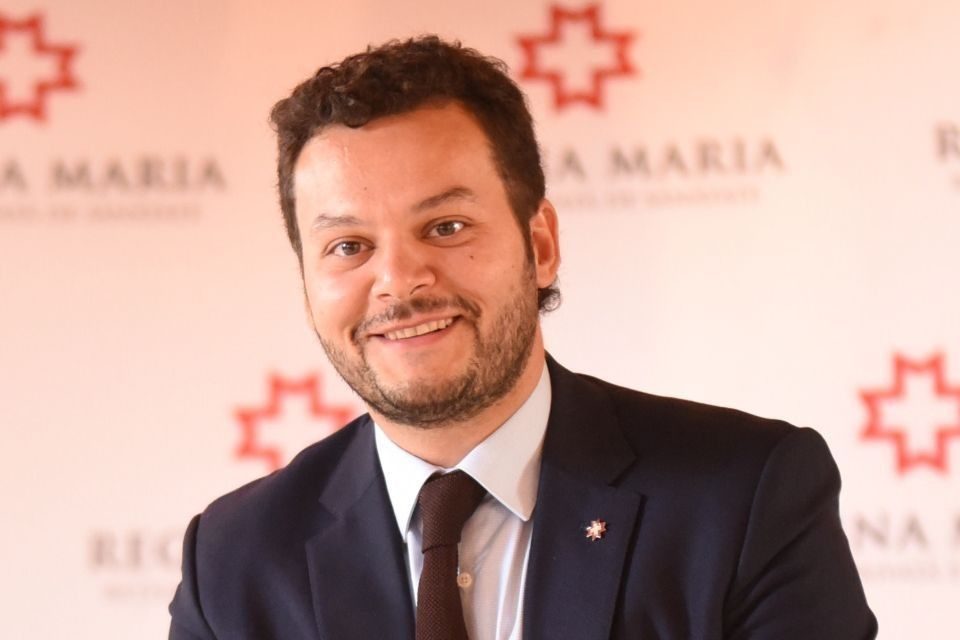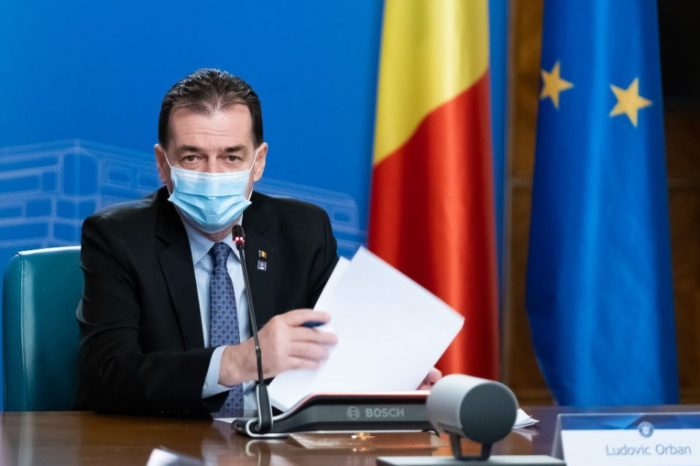INTERVIEW Fady Chreih, CEO Regina Maria: We managed to test, free of charge, more than 13.000 patients and doctors and to provide state hospitals with protective medical equipment

“The Romanian healthcare system is subject to many improvements, like many other areas in our country. But the experience of the first half of 2020 allows us to draw some important conclusions. It was the first time when the state authorities worked side by side with the private healthcare providers to solve this public health situation and this strategy proved to be a winner,” according to Fady Chreih, CEO Regina Maria private healthcare network.
“We were the first private healthcare supplier to process RT-PCR tests for detecting COVID-19 infection. Also, together with our corporate partners we managed to test, free of charge, more than 13.000 patients and doctors and to provide state hospitals with protective medical equipment,” he told The Diplomat-Bucharest. “During this year, our strategy didn’t change, but the short-term plans were affected. So far, we are proud to have implemented the Virtual Clinic 2 years prior to when it was designed to happen, and to have opened the Primaverii clinic as planned, along with other medical units.”
What is your company’s business approach during the COVID-19 crisis?
The pandemic generated an unprecedented and unexpected crisis, for the healthcare system, but also for each and every one of us, because it triggered a lot of anxieties. Regardless the initial preparations we made in the beginning of the year, the stroke proved to be strong and the change, more complex than any expectation.
This period tested our capabilities, but only to reveal that we can do much more than we believed. You know what they say, “where there’s a will, there is a way”. The most important business learning was that, in order to protect our health, solid knowledge and top-notch medical equipment are not enough. Our business approach was based on agility, responsibility and, maybe more than ever, collaboration and solidarity.
As a significant part of the Romanian healthcare system, my colleagues and I felt responsible to act immediately, to be as much as possible close to the first lines of care and to support doctors’ efforts in limiting the pandemic spread. We were the first private healthcare supplier to process RT-PCR tests for detecting COVID-19 infection. Also, together with our corporate partners we managed to test, free of charge, more than 13.000 patients and doctors and to provide state hospitals with protective medical equipment.
For us, REGINA MARIA, responsibility also meant all the rigorous processes implemented in our locations to maintain the safety of our medical staff and patients we care for, from rethinking operational flows, triage, to providing all necessary protective materials.
Having already in-place a fast, flexible and coherent mechanism of action allowed us to create record-time medical or business solutions, such as the Virtual Clinic, online platform that offers patients the opportunity to benefit from medical consultations at home, offering the closest alternative to the classic one. More than 500 doctors joined the platform in just a couple of weeks. Up to now, the platform – a real success, has over 83.000 appointments.
What are the biggest threats and challenges for the Romanian healthcare system?
The Romanian healthcare system is subject to many improvements, like many other areas in our country. But the experience of the first half of 2020 allows us to draw some important conclusions.
It was the first time when the state authorities worked side by side with the private healthcare providers to solve this public health situation and this strategy proved to be a winner. We all are part of the same system and our interest is the same, to direct our best effort for the benefit of the patients. And, under all the aspects that this partnership may imply for the future as well, we proved to be a reliable partner in lifting part of the burden off the state system in COVID-19 testing, monitoring post-COVID19 patients and taking care of chronic patients.
The healthcare system digitalization took on rapid advancements, with many telemedicine solutions being put in place in fast paced times. There are still many legal and technological steps to be taken for such a system to become national, but the ground milestone was achieved.
The last thing I would like to point out is the importance of having enough and well-prepared medical staff. The recent events underlined, more than ever, the necessity of more doctors than we currently have, nationwide, and the necessity of continuous training for them. As a private company, we are investing a lot into retaining talents in our country, offering top infrastructure, but also educational opportunities for training and specialization.
How can we overcome the current crisis and reduce the negative impact of the virus?
The new coronavirus is still understudied and different vaccines and treatment options are still in development. Until we will have final conclusions about it, we all should act with precaution and responsibility and practice social distancing, wear masks and hand hygiene should be a priority.
What are the foreseeable consequences for the local healthcare sector after this pandemic?
A system’s measure of strength is only given by its reaction to the highest pressure. I trust that the important lessons have been learned and the future will see significant improvements.
I will invoke again the 3 pillars stated before: the public-private partnership, digitalization and medical education, where common effort is necessary to make a visible change. General access to professional healthcare is no longer a desire, but more of a necessity of the system. And with all stakeholders aligned, I am confident this will be the most important and positive consequence of this pandemic.
How is Regina Maria dealing with the current situation and what measures were taken for protecting the employees, patients and partners?
We reacted immediately and implemented rigorous safety procedures. The first thing we did was to rapidly reconfigure all safety measures in our clinics and hospitals, applicable both to patients and medical staff. We immediately instituted thorough epidemiologic triage in all medical units, reviewed our operational flows, provided protective equipment and tested our medical staff and patients who needed hospitalization or surgical interventions. Regarding the operational and support departments, we have implemented work systems according to the typology and needs of each one – work from home schedule, staggered (in certain time intervals) or combined, taking care to always be in contact with our partners. All these measures and many more were constantly updated and aligned with national regulations and still in place today in all our units.
Concerning our partners, we covered a lot of areas. I mentioned the PCR testing we did for the local authorities and first line doctors – through our 3 molecular biology labs, we processed up to 20% of the daily testing in Romania. For our corporate partners (subscribers) we provided knowledge, specialized support and procedures meant to protect their employees.
Our solidarity initiatives extended and, with the support of several large corporate partners, we were able to postpone the health subscription payments of SMEs in our portfolio. Fully aware of the economic challenges all of us confronted, we did everything in our power to sustain a healthy economic environment as well.
Also, we continued to provide medical care through REGINA MARIA Virtual Clinic for patients, who either couldn’t access the physical locations or avoided it for precaution. The online platform recorded impressive usage results, but also proved outstanding benefits for our patients. For example, we had several cases in which patients were examined online, did a diagnostic imaging test and life-saving surgery in the same day, even during the state of emergency. Also, the Virtual Clinic proved the best solution to keep delivering medical services to chronic patients that needed supervision, to solve pediatric troubles or to assist patients abroad.
In the last 2-3 months the exit from the state of emergency generated an increase in our business – after all, people need to look after their health through quality medical services. We continue to be cautious and keep our clinics COVID free and I am confident that the lessons we learned made us stronger and more prepared for the future.
What are your short and medium-term plans in Romania?
During this year, our strategy didn’t change, but the short-term plans were affected. So far, we are proud to have implemented the Virtual Clinic 2 years prior to when it was designed to happen, and to have opened the Primaverii clinic as planned, along with other medical units.
As for what the near future brings, we will continue to invest in our digital leadership and medical excellence, thus providing our patients the best solutions and care.
For us, 2020 is a special year, not because of the pandemic, but because this year we celebrate 25 years of private healthcare in Romania and it’s a time of pride and recognition of all the things we accomplished, but also a time to reflect on what we build for the next 25.
We are committed to staying aware, sharp and flexible, ready to adjust furthermore and continue bringing value to our patients.















